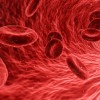
A transient ischemic attack (TIA) is also commonly known as a mini-stroke because it is a temporary experience of stroke-like symptoms. TIAs also share the same causes as strokes, namely a blockage of blood supply to the brain, and are often a sign that an actual stroke may occur. read more

Elderly pneumonia is a serious concern due to seniors' increased risks and the condition's high fatality rate among all age groups. This lung infection, caused by various bacteria, viruses, and fungi, was the eighth leading cause of death in the United States according to 2010 data from the National Center for Health Statistics. Additionally, the Center for Disease Control estimates that 1 in 20 adults who contract pneumonia die from it. read more

During snowy days, there are ways for the elderly to get help with new challenges that arise. Older people, especially those who are homebound or disabled, face significant health risks in the winter season. Depending on where you live, winter may be hazardous or no different from other seasons. read more

For seniors and their caregivers, it is very important to know the risk factors of bedsores and how to prevent them. Clinically known as pressure ulcers, bedsores are skin and tissue injuries that form on the tight skin over bony areas, such as the ankles, heels, hips, shoulder blades, and tailbone, as a result of constant pressure on the skin. read more

It is important to know that many of us will face an increased risk of insomnia as we age. Insomnia is typically defined as difficulty falling or staying asleep, and persistent insomnia disorder is a severe condition where insomnia occurs at least three nights per week over the course of at least one month. read more







